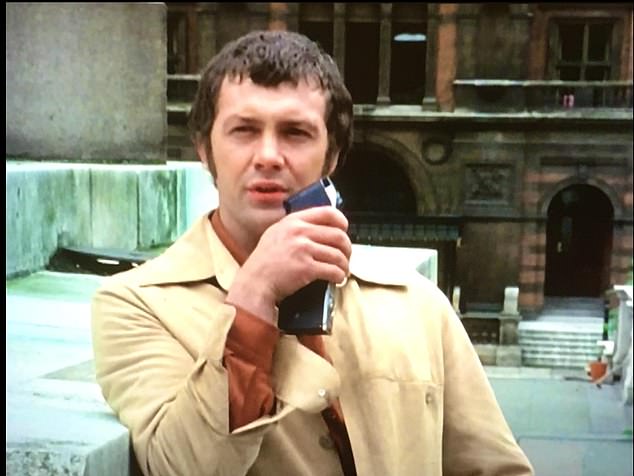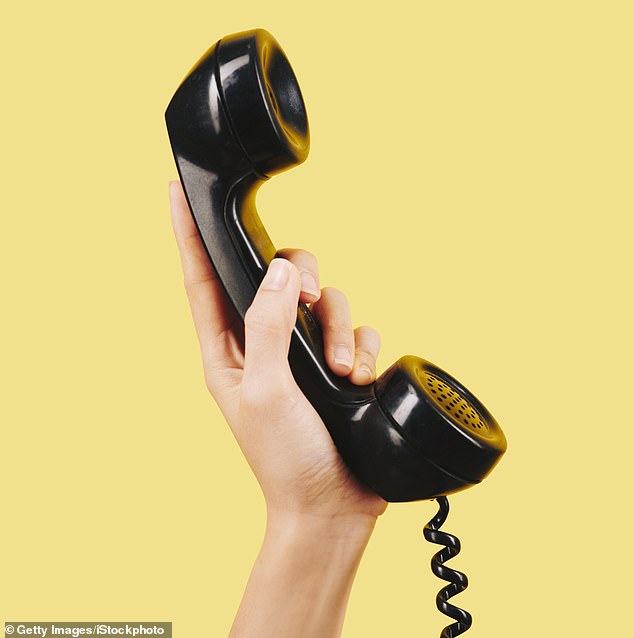What happened to the phone? Perhaps the most brilliant invention of the modern era is being driven out of business by inferior rivals. And this has happened just when it has reached its technical peak.
Almost everyone now has a phone in their pocket or bag. It has free, easy-to-use voicemail if you miss the call or are busy when it arrives. However, these things are used less and less for the simple purpose of one person talking to another person who is far away.
On my mobile device, which must be one of the most obsolete and clunky devices for daily use, I have to search for the phone’s function among approximately 15 other purposes, from taking photographs to arguing on Twitter. And I think most people who want to contact me do so via email, text, or that green thing I never remember the name of, but which is definitely not Instagram.
I like to think that I’m not a careless person, but in recent years I’ve missed an annoying number of fairly urgent engagements because the person who invited me decided to text or email me instead of just calling me. . The best thing about calling people is that you know you’ve contacted them. I tell these texters and emails reproachfully that they might as well have sent me a postcard, and they laugh, but I suspect they don’t know what a postcard is.
I’ve missed an annoying number of fairly urgent engagements because the person who invited me decided to text or email me instead of just calling me, writes Peter Hitchens.
The problem works, or rather does not work, the other way around. I spend a lot of time trying to get government departments, police forces, local authorities or bodies like the BBC to answer my irritating questions.
Once upon a time there was a frequently revised publication called The White Book that provided direct telephone numbers for government press officers. On its cover it said it was “designed to assist journalists and staff of the listed organisations”.
I still have what I think is one of the last ones posted (if it’s still being posted, I have no idea where to get it). It remains mildly useful for those rare state offices that have not had their name or purpose changed five times since its publication in 2012.
Now they’re all websites or general numbers, if you’re lucky. I’ve noticed a growing habit in government offices of answering phone messages with emails, and the best thing about emails is that when you don’t want to answer the questions, you can simply stop answering them.
The same goes for many companies. If you can find their phone number on their website, which is often not possible, you won’t be able to get anyone to answer you. Obviously, the idea is to get the information a customer might need onto the Internet, presumably to save staff. But very often I have a particular question that the website does not help me with.
It’s also a general rule that the younger a person is, the harder it is to get them to answer the phone. Obviously this is sometimes because modern phones tell you who is trying to contact you and I can understand if people of any age don’t want to hear from me. But I get the same complaint from people much nicer than me.
In the midst of all this, I remember how frustrating the world used to be if you didn’t have a phone. I must be one of the last people to receive a real telegram, and not one of those greeting ones. It was 1969, and it came in a small yellow envelope, delivered by a young man on a scarlet and gold Royal Mail motorcycle, and contained (as telegrams are supposed to contain) unwanted news. This was because I had no phone in my cheap room, not even a pay phone on the stairs.
My first years as a reporter were marked by the need to look for public telephones of this type (something I had nightmares about for many years). I learned to call a number when the dial was broken, as it often was. They even told me how to disable my phone to prevent my rivals from using it. When I finally got to a national newspaper, the Post Office, which then managed almost all the telephones in the country, allowed me to skip the queue and I finally had my own telephone.
I still remember the number and the pure joy that it was mine. My office made good use of it, with late-night calls complaining that my rivals had robbed me. There was a strict rule that when I was out of the office, all journalists had to call the newsroom every hour on the hour in case they wanted to contact us.
Later, when I started traveling through the old communist world, where international phone calls could take hours to make and phone booths were just as likely to give you an electric shock as they were to connect you with anyone, I had to start all over again. Before going to live and work in Moscow, I took a short course in telephone engineering, so I could connect good quality British telephones to the Soviet network, greatly improving call quality.
I also installed complex systems so that I could receive messages from London on my answering machine, via public telephones in Moscow (two kopecks per call, a bargain). The problem was that it took me at least three hours to call back to London, unless you could get an illicit reverse charge call through Helsinki, the only foreign city I could call from my illegally rented elite Soviet apartment.

Lewis Collins using a walkie talkie in the 1970s television series The Professionals
Thanks to this frantic need to somehow keep in touch, I passed by one of the most important stories of my life: Boris Yeltsin climbing onto a tank in the middle of a KGB coup in August 1991. I was able to see that something was happening. but it had been so long since I had had contact with London that I dared not stop and look. A big mistake.
A mobile phone would have changed everything, but at that time such things were bordering on science fiction, especially in the unmodern Soviet Empire.
In the 1970s, we had all marveled at a television action series called The Professionals in which secret agents Bodie and Doyle, played by Lewis Collins and Martin Shaw, kept in constant contact with headquarters using portable communicators. Our closest approximation to such things was a telephone in a pub, which had to be filled with coins every few seconds. But at least the USSR still had a functional 1930s-style link system. When a Soviet citizen living in the Urals, 1,100 miles away, published an interesting letter in The Times, London asked me to interview him. But it turned out he didn’t have a phone.
So I went to my wonderful old post office, which had a cat, balls of thread, and bottles of glue, and sent him a telegram. He called me on the phone after half an hour. Nowadays, I can send you a text or email. But would he ever respond?


